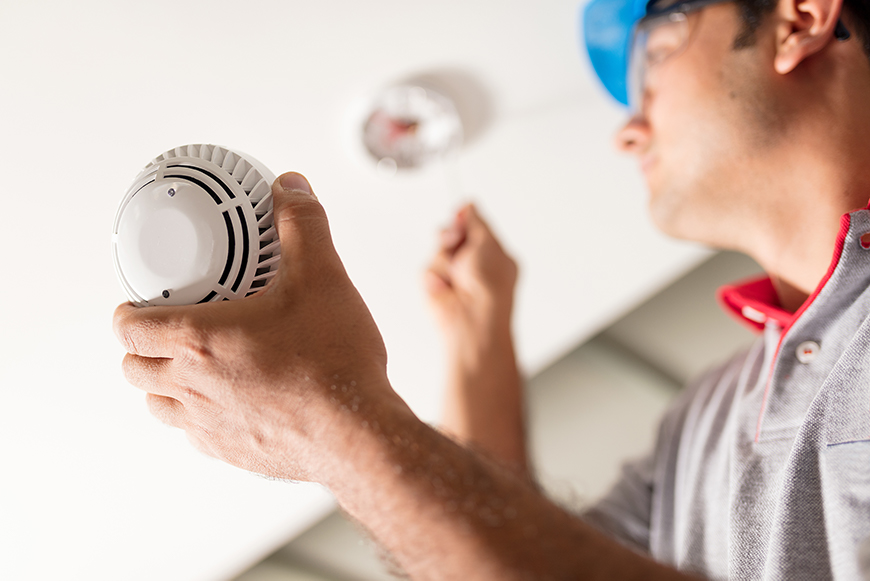
It’s hard to imagine losing a home in a fire but it happens every day and ironically, the colder months are often a time of greater risk.
For those who survive, the sense of loss stays with them for the rest of their lives. It can be truly devastating both physically and emotionally.
As local real estate agents, we know how precious our homes are – they’re the place we feel safest. So we’re keen to highlight the importance of this safety issue.
Below are 10 potential problem areas that can be the start of a fire. Stay safe!
- Smoke alarms – You should have smoke alarms installed in your home and it is compulsory in properties being rented. If you do not have smoke alarms or are not sure about the status of your alarms, please contact an electrician to get this underway urgently. Batteries in older alarms should be checked regularly – fire services recommend checking them each daylight savings change over. Faulty alarms don’t save lives.
- The kitchen – This is a common area for fires to begin. Anything from pans of fat to toasters full of crumbs will start a blaze if you’re not careful. Empty the toaster crumb tray regularly and always keep an eye on the stove when cooking with oils.
- Pests – This name doesn’t do justice to the damage they cause. Rats and mice are more than just pests. They can chew through wires and spark a blaze which can be infinitely more dangerous than just a few droppings. If you have a cute little mouse that dashes around the house, call the exterminator to show it the exit.
- Heaters – Dust and heat elements are a potentially lethal combination. Make sure you keep your heaters clean and don’t allow dust to build up. And whatever you do, don’t dry clothes too close to the elements. Countless house fires start like that every year.
- Chimneys – If you wood-burn for heat, sweep your chimney before autumn each year. Deposits of tar or creosote settle inside the chimney and can quickly start a blaze.
- Hair dryers – Hair and dust are a fuse to hairdryers. If you smell burning, then you’ve got a problem. Clean it, or throw it out. Never walk away from a hairdryer when it’s on. The power cord can heat and melt. Also, please buy only hair dryers that meet safety standards. Which is another way of saying, don’t make a purchase on the internet unless it’s from a reputable source.
- Exhaust fans and range hoods – These have to be kept clean. Bathroom fans collect dust that can cause them to overheat – and you know the rest. Modern ones have a thermally-protected motor, but a dust-free strategy is still best. Range hoods should be free of fat and grease residue from cooking on the stove. Most have filters that can be easily removed and put into the dishwasher for a good clean.
- Air-Conditioners – A regular check for broken wires is recommended. Watch out for those that have frayed, as these are the most dangerous. Wrapping the wire in masking tape is an adequate temporary measure but not a substitute for getting your air-con serviced professionally.
- Dryers – Another potential villain, a clothes dryer can easily catch fire because of the heat it generates to do its job. Lint is the usual culprit, clogging vents and filters so regular cleaning is essential.
- Old rags – It’s not the rags that are your problem but the chemicals on them. Potentially two chemicals can react and combust spontaneously. That doesn’t happen every day, but it is worth being mindful of the risk.
If you’re in an older home, you may want to ask your local fire chief if they will provide further guidance on ensuring your home is safe and this is often a free service. An inspection of the electrical wiring by an electrician can also be money well spent.
